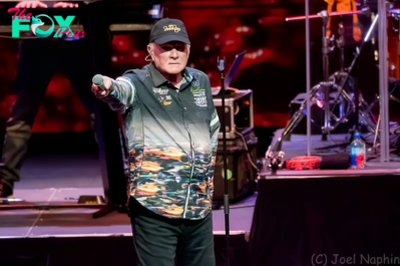Entertainment
A watch-popping Turandot on the LA Opera – Seen and Heard Worldwide
 United States Puccini, Turandot: Soloists, Refrain and Orchestra of LA Opera / James Conlon (conductor). Dorothy Chandler Pavilion, Los Angeles, 18.5.2024. (JRo)
United States Puccini, Turandot: Soloists, Refrain and Orchestra of LA Opera / James Conlon (conductor). Dorothy Chandler Pavilion, Los Angeles, 18.5.2024. (JRo)
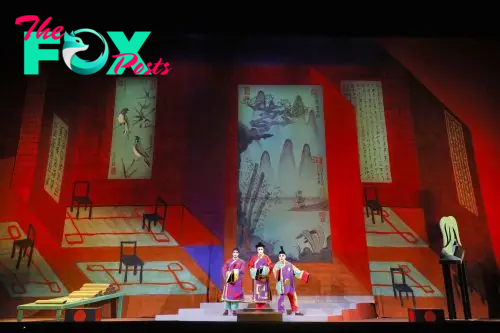
Manufacturing:
Director – Garnett Bruce
Units – David Hockney
Costumes – Ian Falconer
Authentic Lighting – Thomas J. Munn (revived by Gary Marder)
Refrain director – Jeremy Frank
Youngsters’s Refrain director – Fernanda Malvar-Ruiz
Choreographer – Kitty McNamee
Forged:
Turandot – Angela Meade
Calaf – Russell Thomas
Liù – Guanqun Yu
Timur – Morris Robinson
Ping – Ryan Wolfe
Pang – Terrence Chin-Loy
Pong – Julius Ahn
Mandarin – Alan Williams
Emperor Altoum – Ashley Faatoalia
The orchestra was ravishing, and the singing of the principals excellent. The units and costumes, which hail from a San Francisco manufacturing first mounted in 1993 however new to Los Angeles, have been pleasant. Why then did LA Opera’s Turandot really feel unsettled? The truth that Puccini died earlier than finishing the opera is, in fact, the predominant issue.
In music, literature or visible artwork, an unfinished work that’s posthumously carried out or printed has issues. Whether or not Puccini’s Turandot, Fitzgerald’s The Loves of the Final Tycoon or El Greco’s altarpiece, The Imaginative and prescient of St. John, to call just a few, the ultimate type by no means fairly satisfies. Puccini envisioned a concluding love duet between Calaf and Turandot as the final word second of the opera, with a lot the identical import because the love duet from Tristan und Isolde. With out this, the opera ends considerably abruptly (the ultimate duet and shutting scene used on this manufacturing have been provided by Franco Alfano and abridged by Toscanini).
However past this, the plot of the opera presents an advanced set of hurdles to beat in any manufacturing. Calaf loves Turandot, the icy, murderous princess whose major attribute is an unwholesome concern of males as a result of her historical ancestor was ravaged by a Tartar. Her rage manifests itself in an oath to behead any suitor who fails to reply the three riddles she poses. This would possibly sound like a Grimm fairytale, however the libretto was impressed by Carlo Gozzi’s eighteenth-century commedia dell’arte play. That, nonetheless, was a comedy which acknowledged the absurdity of a person who might love a monster like Turandot.
The illogical nature of Calaf’s love for Turandot is much more pronounced with Puccini’s addition of the character of Liù – the slave woman who protects and accompanies Calaf’s blind father, Timur. She is a sympathetic, virtuous lady who loves Calaf and is keen to sacrifice herself for him. Like Mimì, she attracts us to her, and the marvel is why Calaf wouldn’t desire her to Turandot.
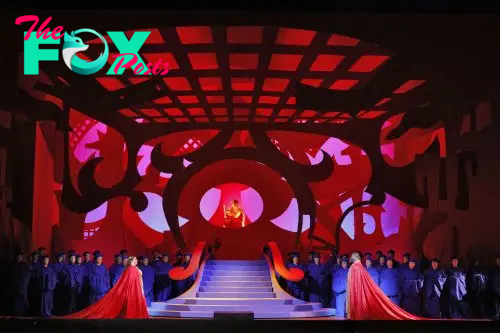
What is required to counteract this puzzle is chemistry between Calaf and the princess. Calaf eschews riches and energy, and his solely motivation is his love for Turandot – although when he first lays eyes on her, she has simply presided over the beheading of one other suitor. Sadly, there was no chemistry between the pair. Even within the third act, when Calaf melts the guts of the princess with a passionate embrace, Russell Thomas and Angela Meade hugged like two awkward, embarrassed kids.
What they lacked in attraction, they made up for in singing. Meade has sufficient vocal energy to be heard over Puccini’s use of a large refrain and orchestra. What I missed in her strong and vibrant rendering of the princess was some modulation and coloration in her voice, which appeared to remain at a high-octane stage all through. Maybe she is Healthier suited to a task like Norma, carried out right here in 2015 (and that includes Thomas as Pollione), the place past her apparent capacity to mission her voice, her agility and lyricism had room to unfold.
Thomas wanted to comPete with Meade’s depth, and it felt at instances as in the event that they have been collaborating in an Olympic occasion. He didn’t disappoint on this planet’s most beloved and standard aria, ‘Nessun dorma’, producing a lush, full-bodied sound with a heat that lastly made believable his love for Turandot.
Because the emotional middle of the opera and its true heroine, Guanqun Yu within the function of Liù was unimpeachable. Her voice had a finely honed magnificence. As for her performing, her love for Calaf was palpable, her sacrifice heartbreaking.
Morris Robinson as Timur, Calaf’s father and the exiled king of Tartary, possessed a quiet dignity befitting the blind, helpless king. The great thing about his voice is omnipresent in any function he inhabits, and his noble stature, juxtaposed with the slight body of Yu, solely added to the pathos of his character.
Costumes by famed illustrator, Ian Falconer (creator of the Olivia books and quite a few New Yorker covers) have been charming, imaginative and colourful. Nevertheless, the stately robes and princely clothes of Calaf and Timur have been perplexing. They’re persecuted males who’ve misplaced their lands in battle and been ravaged by the hardships of exile. Tattered costumes are the norm, however almost definitely Falconer couldn’t resist dressing them within the luxurious purple and gold that befit their former stations.
The costumes and make-up design had such whimsical attraction that I wanted artist David Hockney had toned down his units to let the dazzling characters stand out. The units have a particular fairytale ambiance, however they have been such an intense pink that the singers have been typically overshadowed by vibrating coloration. Minimize-out abstractions of palace structure have been extra two-dimensional than sculptural, and the set design compelled the refrain to the sting of the stage, making a cramped really feel to the motion.
The best set was the Chinese language scroll backdrop for the primary scene in Act II. The vivid backdrop set off the antics of the three ministers, Ping, Pang and Pong, characters pulled from Gozzi’s play: they preserve their fanciful commedia dell’arte roots within the opera. Ryan Wolfe, Terrence Chin-Loy and Julius Ahn provided the wanted comedian reduction, however their singing felt skinny. Because the lead minister, baritone Wolfe struggled within the greater registers. They fared higher in Puccini’s notable scherzo, delivered beautifully by the LAO Orchestra, when the three sang fondly of the properties they’d left behind.
The orchestra below James Conlon was awash within the luminous colours of Puccini’s rating and was an impressive drive, as was the refrain below the route of Jeremy Frank. Extra dominant than in any of Puccini’s operas, the refrain – a personality in itself – alternately thirsted for blood, provided compassion and commented on the motion. Each the orchestra and the refrain gave thrilling performances.
Jane Rosenberg
-

 Entertainment3h ago
Entertainment3h agoGladiator 3 Already in Works, Reveals Director
-
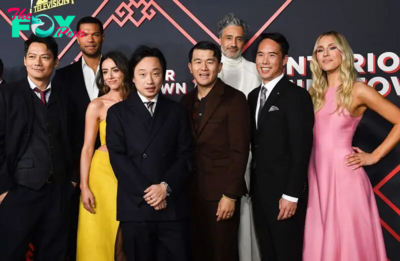
 Entertainment9h ago
Entertainment9h agoHow ‘Interior Chinatown’ Satirises Asians in Hollywood with Witty Social Commentary
-

 Entertainment19h ago
Entertainment19h agoHow to See Ava, Chiang Mai Night Safari’s Golden Tiger
-

 Entertainment20h ago
Entertainment20h agoDictionary.com Names ‘Demure’ as Its Word of the Year for 2024
-
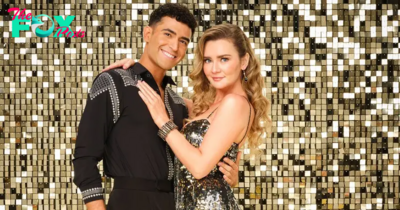
 Entertainment22h ago
Entertainment22h agoAnna Delvey Reunites With Ezra Sosa and Flips Him Off Ahead of ‘Dancing With the Stars’ Finale Return
-

 Entertainment1d ago
Entertainment1d agoMethods to Recharge as an Actor
-

 Entertainment1d ago
Entertainment1d agoWeak Sign: October 4, 2024 Tubby’s
-
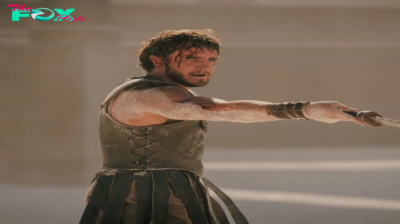
 Entertainment1d ago
Entertainment1d ago‘Gladiator II’ Ending Breakdown: Did Lucius Realise Maximus’ Dream of Rome?




